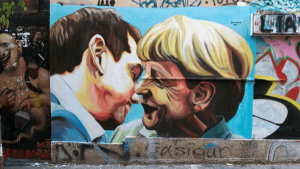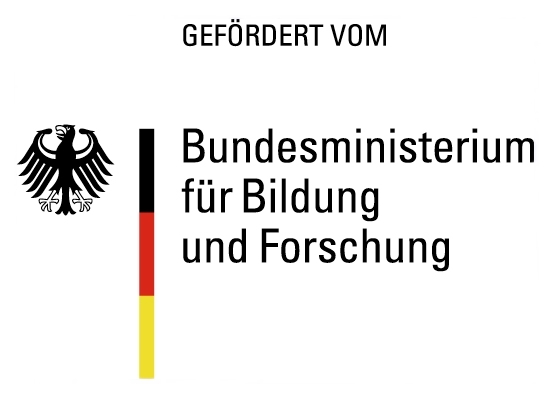english version below
Solidarität in Europa (Soziologie/Philosophie)
Das Projekt fragt nach den Strukturbedingungen, Prozessdynamiken und Folgewirkungen solidarischen Handelns im Zeichen der „Euro-Krise“. Am Beispiel des Aufbaus eines solidarischen Gesundheitswesens in Griechenland untersucht es die konkreten lokalen Praktiken und translokalen Verflechtungen sowie die individuellen und kollektiven Motivlagen solidarischen Handelns im Feld gesundheitlicher Versorgung. Dabei werden insbesondere auch die Ambivalenzen und Widersprüche in den Blick genommen, die sich aus dem privaten bzw. zivilgesellschaftlichen Kompensationshandeln für erodierende oder versagende öffentliche Sozialleistungssysteme einerseits, aus Konstellationen der erzwungenen Annahme von Fremdhilfe andererseits ergeben. In diesem Kontext rücken zudem Fragen des Stellenwerts transnationaler Solidarität für die Maßstabserweiterung einer sozialen, die materielle Teilhabe und den gesellschaftlichen Zusammenhalt gewährleistenden Demokratie in den Mittelpunkt des Interesses. Die soziologische Frage nach einem Verständnis der Praktiken von Solidarität im europäischen Kontext wird verbunden mit einer sozialphilosophischen Rekonstruktion der normativen Implikationen dieser Entwicklungen und der politisch-philosophischen Reflexion ihrer demokratischen Funktion. Im Mittelpunkt beider Unterprojekte steht dabei das Konzept der Relationalität, die Vorstellung also sozialer Verbundenheit und daraus resultierender Begründungen solidarischen Handelns. Ihr Substrat bezieht diese Vorstellung, so unsere Ausgangsthese, zum einen aus dem Handlungsfeld der Gesundheitsversorgung, in dem fundamentale, biopolitische Fragen von Leben und Tod zur Debatte stehen. Zum anderen bildet der Deutungshorizont Europas bzw. der europäischen Integration eine spezifische, politisch-kulturelle Rahmung solidarischer Praktiken.
Solidarisches Gesundheitswesen in Griechenland
Bearbeiter:
Mirko Broll, LMU München
mirko.broll@soziologie.uni-muenchen.de
Im Zuge der seit dem Jahr 2010 anhaltenden, in zyklischen Abständen mal mehr und mal weniger dramatische Züge annehmenden Staatsschuldenkrise Griechenlands ist das Land von den EU-Institutionen zu einer radikalen Austeritätspolitik gezwungen worden. Insbesondere im Sozialsektor sah sich der griechische Staat zu immer neuen Spar- und Kürzungsrunden genötigt, die sich sowohl auf die öffentlichen Transfersysteme (namentlich die Alterssicherung) wie auf den Bereich sozialer Infrastruktur und Dienstleistungen bezogen. Der griechische Gesundheitsetat beispielsweise ist über die Krisenjahre hinweg um nicht weniger als die Hälfte geschrumpft, etwa ein Drittel der Bevölkerung verfügt zudem mittlerweile über keine Krankenversicherung mehr. In ganz Griechenland bildeten sich vor diesem Hintergrund spontan Initiativen und Einrichtungen der solidarischen Organisation gesundheitlicher Versorgung „von unten“, die neue Formen der Interaktion und Kooperation zwischen einer Vielzahl von Akteuren (Ärzt*innen, Arzthelfer*innen, Patient*innen, Krankenhäusern, Apotheken, Freiwilligen, lokalen NGOs usw.) hervorbrachten. Mit nur geringer zeitlicher Verzögerung entstanden parallel dazu in Deutschland (wie auch in anderen europäischen Ländern) auf ehrenamtlicher Basis Hilfs- und Unterstützungsnetzwerke, die neben Geld- und Sachspenden auch unterschiedliche Formen des „humanitären Tourismus“ organisieren. Die auf den Aufbau und die – wie auch immer prekäre – Stabilisierung eines solidarischen Gesundheitswesens zielenden sozialen Praktiken in Griechenland und Deutschland stehen im Zentrum des Forschungsinteresses. Für die Frage der Begründung solidarischen Handelns ist der Gesundheitssektor von besonderer Bedeutung, gilt doch die Gesundheit bzw. körperliche Unversehrtheit (noch vor der Bildung) als basales, ja nachgerade ‚vitales‘ soziales Gut, dessen Bereitstellung unbestreitbar eine Aufgabe öffentlicher Daseinsvorsorge darstellt.
Geprüft werden soll, welche Deutungsmuster und Motivstrukturen das lokale bzw. transnationale Unterstützungshandeln im Gesundheitssektor anleiten, welche Dynamiken der sozialen Kooperation sich in beiderlei Hinsicht ergeben und von welchen manifesten und latenten Konfliktlinien diese Kooperationsbeziehungen womöglich durchzogen sind. Diesbezüglich ist zum einen von Interesse, wie von den zivilgesellschaftlichen Akteuren ihre Rolle als Ausfallbürgen öffentlicher Institutionen gedeutet wird und welche Zeithorizonte sie ihren Unterstützungsleistungen unterlegen. Zum anderen interessieren uns die Bilder und Interpretationen der hiesigen Unterstützer*innen von den griechischen Verhältnissen und die Sicht der griechischen Aktivist*innen wie auch ihrer Klient*innen auf die informelle Hilfe aus Deutschland. Den Fluchtpunkt bildet dabei die Frage, inwiefern sich im Bereich des solidarischen Gesundheitswesens neue, lokale und transnationale Formen gesellschaftlicher Selbstorganisation und demokratischer Teilhabe konstituieren, die über eine bloße Notsolidarität in Krisenzeiten hinausweisen.
Solidarität jenseits von Recht und Gerechtigkeit
Bearbeiterin:
Karolin-Sophie Stüber, Hochschule für Philosopie, München
karolin-sophie.stueber@hfph.de
Aus der Perspektive der politischen Philosophie und Sozialphilosophie ist die Debatte über die Entwicklung der Europäischen Union stark von liberalen Ansätzen in der Tradition Kants geprägt. Diese Tradition geht sozialontologisch vom einzelnen Individuum aus und fragt darauf aufbauend in normativer Hinsicht nach der Begründung universaler Kriterien und politischer Institutionen, die bestmöglich die Freiheitsspielräume der Bürger*innen schützen. Gemeinschaftlichkeit wird basierend auf dem kantischen Vernunftbegriff gedacht, wodurch ein spezifisches Verständnis des Politischen entsteht. Auf dieser Basis wurde in vielen unterschiedlichen Traditionen u.a. nach der Begründung sowohl universeller als auch europäischer Werte gefragt, Gerechtigkeit als normatives Leitbild ausgewiesen oder neue politische Institutionen entworfen. Dabei zeichnete diese Überlegungen ein enger argumentationslogischer Zusammenhang zwischen Gerechtigkeit, Recht und demokratischen Institutionen aus, der über den Nationalstaat hinaus auf die europäische Ebene übertragen wurde. Dass diese Übertragungen von der nationalstaatlichen auf die europäische Ebene jedoch hohe politische Bedeutung haben und keineswegs unumstritten sind, zeigt sich etwa an der europäischen „Krise“ der vergangenen Jahre, dem Brexit und dem Erstarken rechtspopulistischer und rechtsextremer Parteien in ganz Europa.
Die sozialphilosophische Studie versucht sich an einer Zeitdiagnose dieser „Krisenphänomene“, die durch die Konzepte von Vernunft, Recht und Gerechtigkeit eventuell nicht länger hinreichend beschrieben werden können. Ergänzend soll daher ein Verständnis von politischer Solidarität herausgearbeitet werden, das auch der Parteilichkeit, der Relationalität des Sozialen und der emotional-affektiven Seite menschlichen Handelns Rechnung trägt, und gegenwärtige gesellschaftliche und globale Transformationen, Krisen und Umbrüche, aber auch neuere Formen der Interaktion und Praktiken gemeinschaftlichen Handelns einer theoretischen Reflexion zugänglich macht. Paradigmatisch soll dies nachvollzogen werden an den solidarischen Praktiken im Gesundheitswesen, die sich in besonderer Weise in Griechenland herausgebildet haben. Vor diesem Hintergrund will die Studie die politisch-philosophische und sozialphilosophische Debatte zu sozialen und politischen Transformationen im europäischen Kontext kritisch reflektieren und danach fragen, welche theoretischen Leerstellen es im gegenwärtigen Diskurs gibt und welche alternativen Deutungen sozialer und politischer Prozesse angesichts aktueller Krisen überzeugen können. Damit soll auch für das Gesamtprojekt ein systematisches Raster entwickelt werden, welche Formationen solidarische Praktiken angesichts ausfallender Staatlichkeit heute aufweisen, wie sich ihre sozialen und politischen Strukturbedingungen erklären lassen und welche Ambivalenzen sie hinsichtlich der Bearbeitung konkreter Krisenphänomene implizieren.
Koordination:
Prof. Dr. Stephan Lessenich, LMU München
Solidarity in Europe (Sociology/Philosophy)
The project examines the structural conditions, process dynamics and consequences of solidarity in the context of the ‘euro crisis’. Using the example of the establishment of a solidarity-based health system in Greece, it examines the concrete local practices and translocal interdependencies of solidarity as well as the individual and collective motives for solidarity-based action in the field of health care. It particularly investigates the ambivalences and contradictions resulting from private or civil society actions compensating for eroding or failing public benefit systems on the one hand and resulting from constellations of the forced acceptance of external assistance on the other hand. In this context, questions move into focus involving the importance of transnational solidarity for extending the scale of a social democracy that guarantees material participation and social cohesion. The sociological question of an understanding of the practices of solidarity in the European context is combined with a social-philosophical reconstruction of the normative implications of these developments and the political-philosophical reflection of their democratic function. Both subprojects focus on the concept of relationality, i.e the idea of social bonds, and justifications of solidarity-based action resulting thereof. According to our initial thesis, this idea derives its substrate from the action field of health care, in which fundamental biopolitical questions of life and death are debated. On the other hand, Europe and European integration constitute a specific political-cultural framing of solidarity practices.
Solidary Healthcare in Greece
Contact: Mirko Broll, LMU Munich
mirko.broll@soziologie.uni-muenchen.de
In the wake of Greece’s economic crisis, which has been ongoing since 2008 and taking on more and less dramatic features at cyclical intervals, the EU institutions have forced the country to adopt a radical austerity policy. Especially in the social sector, the Greek state was compelled to keep on saving and cutting back, both in terms of public transfer systems (namely old-age provision) and in terms of social infrastructure and services. The Greek healthcare budget, for example has more than halved over the crisis years and about one third of the population no longer had any health insurance during the peak of the crisis. Against this background, initiatives and facilities spontaneously emerged throughout Greece, organising solidary health care ‘from below’ and generating new forms of interaction and cooperation between a variety of actors (doctors, medical assistants, patients, hospitals, pharmacies, volunteers, local NGOs, etc.). With only a short delay, honorary-based aid and support networks were set up in Germany (and other European countries) organising not only monetary and material donations but also various forms of ‘humanitarian tourism’. The social practices in Greece and Germany aiming at the establishment and – however precarious – stabilization of a solidary health system are the focus of research interest. Regarding the question of justifications for solidarity, the health sector is of particular importance since health or physical integrity (even before education) is regarded as a basic, almost ‘vital’ social good, the provision of which undoubtedly constitutes a task of public services of general interest.
The aim is to examine which patterns of interpretation and motivational structures guide local or transnational support action in the health sector, which dynamics of social cooperation arise in both respects, and which manifest and latent lines of conflict may pervade these cooperative relationships. In this respect, it is of interest how civil society actors interpret their role and what time horizons they put underneath their support services. Moreover, we are interested in the images and interpretations local supporters have of the Greek conditions, and in the view Greek activists as well as their clients have on informal help from Germany. The vanishing point here is the question to what extent new, local and transnational forms of social self-organisation and democratic participation are constituted in the field of solidarity-based health care that go beyond mere solidarity of need in times of crisis.
Solidarity beyond Law and Justice
Contact: Karolin-Sophie Stüber, Munich School of Philosophy
karolin-sophie.stueber@hfph.de
From the perspective of political philosophy and social philosophy, the debate on the development of the European Union is strongly influenced by liberal approaches of Kantian tradition. This tradition is based on the social ontology of the individual and asks in normative terms for the justification of universal criteria and political institutions that protect the freedom of citizens best. Community is thought on the basis of the Kantian concept of reason, whereby a specific understanding of the political emerges. On this basis, many different traditions have asked questions on the justification of both universal and European values, on justice as a normative model, or on the design of new political institutions. These considerations were characterised by a close logical connection between justice, law and democratic institutions, which was transferred beyond the nation state to the European level. However, the fact that these transfers from the national to the European level are of great political significance and by no means uncontroversial is demonstrated by the European ‘crisis’ of recent years, the Brexit and the rise of right-wing populist and far-right parties throughout Europe.
The social-philosophical study aims at a contemporary diagnose of these ‘crisis phenomena’, which can no longer be sufficiently described by the concepts of reason, law and justice. Thus, the study attempts to work out a complementary understanding of political solidarity that also takes into account partiality, the relationality of the social and the emotional-affective side of human action. Moreover, it makes current social and global transformations, crises and upheavals as well as newer forms of interaction and practices of collective action accessible to theoretical reflection. This can paradigmatically be reconstructed looking at the solidary practices in healthcare which have developed in a special way in Greece. Against this background, the study will critically reflect on the political-philosophical and social-philosophical debate on social and political transformations in the European context. It will ask for the theoretical voids existing in the current discourse and for alternative interpretations of social and political processes that can be convincing in the face of current crises. In this way, the study is to develop a systematic grid for the overall project: which formations do solidary practices show today in the face of malfunctioning statehood, how can their social and political structural conditions be explained and which ambivalences do they imply with regard to dealing with concrete crisis phenomena.


